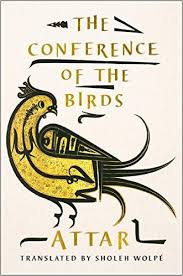Flame Tip is a collection of short stories
that pivots around the devastating 1967 bushfires that ripped through Southern
Tasmania, leaving 62 people dead, 900 injured and over seven thousand homeless.
These fires have been seared into the Tasmanian psyche and, fifty years on,
even as history drags this moment in time away from us, Tasmanians are hyper
vigilant and aware of lessons learnt from those days. Those attributes, which
could be as a result of trauma suffered by the community more broadly, have meant
that recent suburban and peri-urban fires and the damage wrought is felt more
keenly, but also that they have been responded too more wisely.
I often get nervous reading new short
fiction, as it is rare to find true gems amongst any literature, even rarer
amongst the smaller population of writers in Tasmania. I breathed a sigh of
relief after the first story in this collection, confident that KarenleeThompson
can construct a solid story and take the reader on a short journey with her
prose. These stories hum a good tune, and are generally well constructed.
As mentioned, the book’s stories pivot
around the ’67 bushfires, but they also cover the territory of domesticated
life, love and romance. Some of them delve into deceit and one of them, ‘The
Keeper of the Satchel’, fairly distinct in the collection, delves into a man’s
mind as he creates a new dictionary, a dictionary that better reflects his
understanding of the world. A recurring theme is the burnt, or deceived woman,
which is treated with a small element of bitterness in the poignant story, ‘A
Bird in the Oven’, where a wife is left by a husband who is dizzy with a new
woman, and the story follows her personal regeneration, and that of her family.
Alongside the destruction of fire and
ensuing loss are other motifs including the tacky ex husband. These stories
have an edge of spite to them, though the cuckolded woman is the victor. They
do seem to be a little raw though, a little as if it has been written as a
revenge story, and this detracts from the reading experience. They feel
burdened.
In her introduction, Karenlee Thompson
borrows from the Nobel Prize winning Chinese writer Gao Xingjian, and talks
about presenting a version of truth ‘under the mask of fiction’, and this does
leave the reader to wonder what aspects of the stories are autobiographical,
but that is superfluous, really, as these stories generally, save a few, have a
good narrative arc and propel the reader onwards.
The book also has a foreword by David Walsh, with typically wonderful and obscure references, which has surely lead more people to pick up a book of short stories, which is a good thing.
The book also has a foreword by David Walsh, with typically wonderful and obscure references, which has surely lead more people to pick up a book of short stories, which is a good thing.
The fact that the book pivots around the
fires is tricky territory, as this book’s readership will predominantly be in
Tasmania and to bring a version of fiction to an event that is painfully true
for many, is brave, and ultimately healing. We must, however, consider that the
fire has been carried on, through living memory and even through epigenetic
dispersal (not to get too Walshian on you’all) and that to bring it front and
fore not only offers space for healing, but also for pain to arise.
Versions of this review have been published in Warp (May 2017) and TasWeekend magazine (May 27, 2017)










